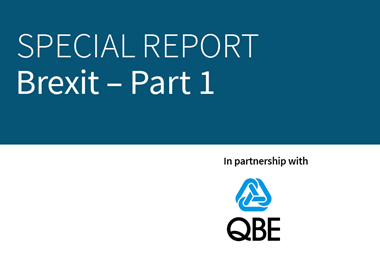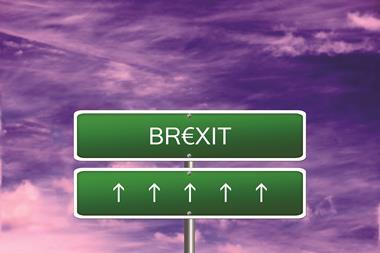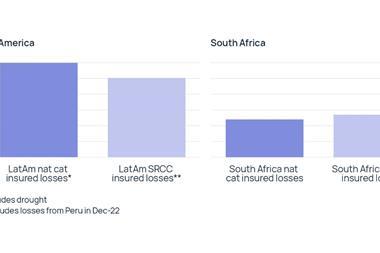A Brexit is unlikely, according to AXA IM’s economist, but the consequences for the UK could be dire if it withdrew from the Union

The UK is likely to suffer a 2% to 7% drop in GDP over the next 15 years, if the British public vote to withdraw from the European Union, warned AXA Investment Managers.
The investment firm said that a British exit (a so-called ‘Brexit’) is unlikely but that the chances of a no-vote will increase significantly if the EU migration crisis worsens or Europe suffers another terrorist attack similar to the November 2015 Paris attacks.
These were the headline findings of a report published by AXA IM, which weighs up the consequences for the UK should it leave the EU.
Presenting the report’s findings at an event held at Lloyd’s of London, the report’s author David Page, UK and US economist at AXA IM, said three reasons count against a Brexit.
First, the UK government is campaigning aggressively to stay in the EU, which will have “some resonance with some of the British people,” Page said.
Second, British businesses have started to speak in favour of remaining in the EU. “Those that are somewhat distrustful of politicians may look to the business community [because they] believe that [businesses] give a more objective assessment of what would happen to the country post-Brexit,” he said.
Last, status quo bias may influence how people vote on 23 June, the date of the EU referendum, he said. “Looking at referenda outcomes across the EU over the last 30 years, we can see that there has always been a preference for the status quo. It is a natural human emotion to ‘fear change’.”
Historically, voting decisions that side with the status quo tend to be expressed closer to voting date, “which we saw in the recent the Scottish referendum”.
But voting sentiment could change if the EU migration crisis worsens. “The EU migration crisis is weighing on people’s mind,” says Page. “A lot of people see a Brexit as a way to give [the UK] greater control over migrant flows. The more the EU migration crisis [worsens], the more we see trouble at the borders, and the more the migration crisis will weigh on people’s mind.
“The final thing that weighed on the polls last year were the terrorist attacks that took place in Paris in November 2015. If anything like that happened over the next few months, it could have quite a significant impact on the referendum results.”
Post-Brexit free-trade agreements
AXA IM also investigated the impact a no-vote would have on trade and financial services.
At the moment, the EU accounts for 44% of the UK’s export. Post-Brexit, the UK would likely arrange a bespoke bilateral free trade arrangement (FTA) with the EU, but there are likely to be difficulties in securing the best tailor-made agreement.
AXA IM predicts that an FTA agreement will maintain the UK’s access to EU markets for goods (of which it is a large importer). But the UK is a service dominated economy and obtaining a favourable services agreement will be more difficult, the report said.
Furthermore, as a member of the EU, the UK is part of a network of preferential trade agreements with non-EU countries, to which 10% of its exports go.
Additionally, of all UK exports, more than 25% are to countries that are currently negotiating trade agreements with the EU or whose agreements are yet to be implemented. If the UK were to leave the EU, it would have to renegotiate new agreements with these countries, but it is unclear whether it would be able to do so.
Consequences for Europe
For Europe, however, a Brexit is unlikely to cause adverse problems. The EU will only see a small net negative impact, said AXA IM.
Nonetheless, some countries could suffer more than others, namely Ireland and the Netherlands, both of which have large trade links with the UK.
Inadvertently, a Brexit may encourage other countries to think about leaving the EU, but Page thinks this is unlikely, certainly in the short term.
“A country like Sweden, which is part of the EU but not the Eurozone, might look at what [happens to the UK in the event of a Brexit] and follow suit.
“If our report has underestimated the benefits and the UK is performing much more strongly [after a Brexit], then there will be some increased pressure for an additional exit,” said Page.
“But in terms of what a Brexit will mean for the EU over the next two to three years – other than giving a few more stories to [anti-EU] movements within the Eurozone – I’m not sure it’s going to have that much of an impact.”




















No comments yet